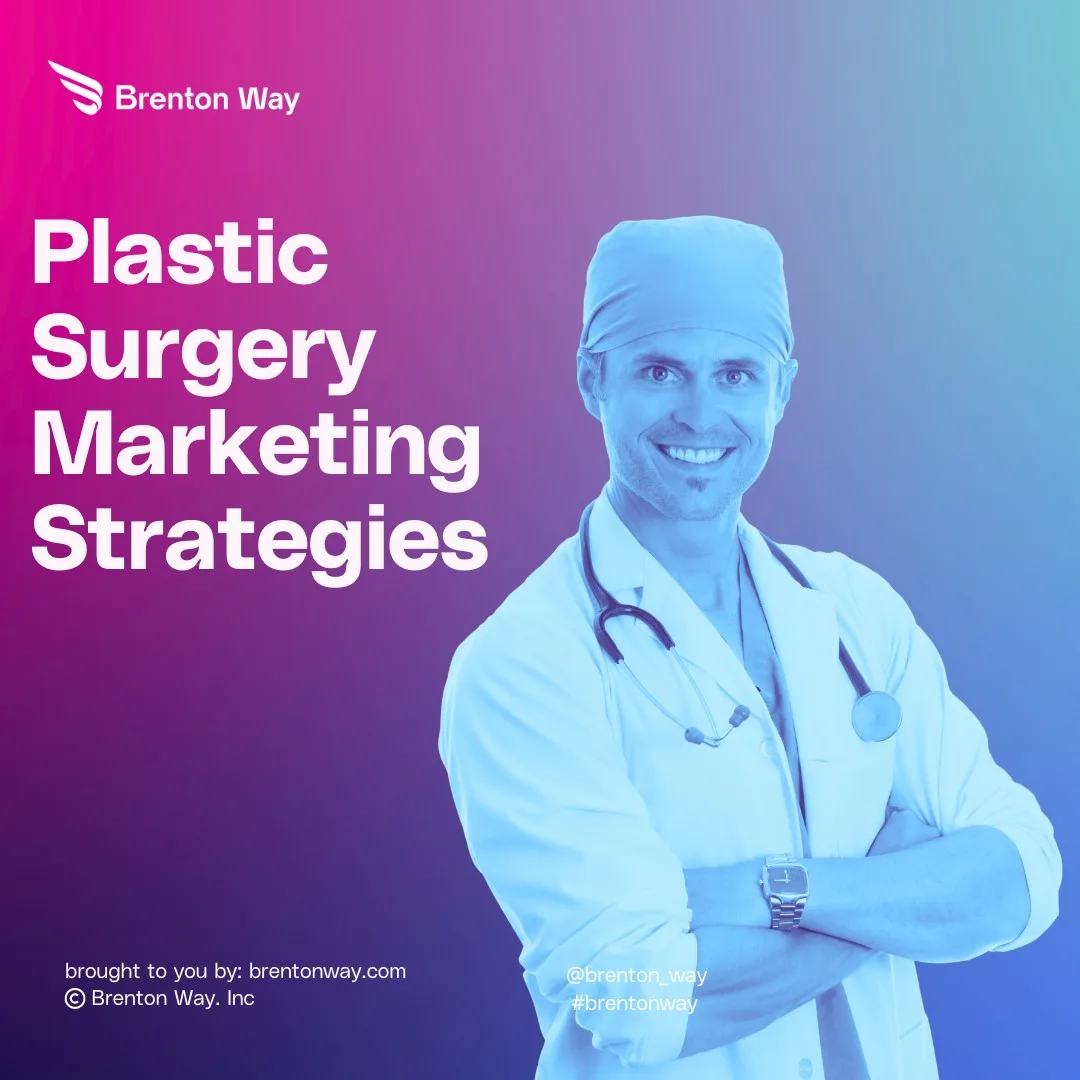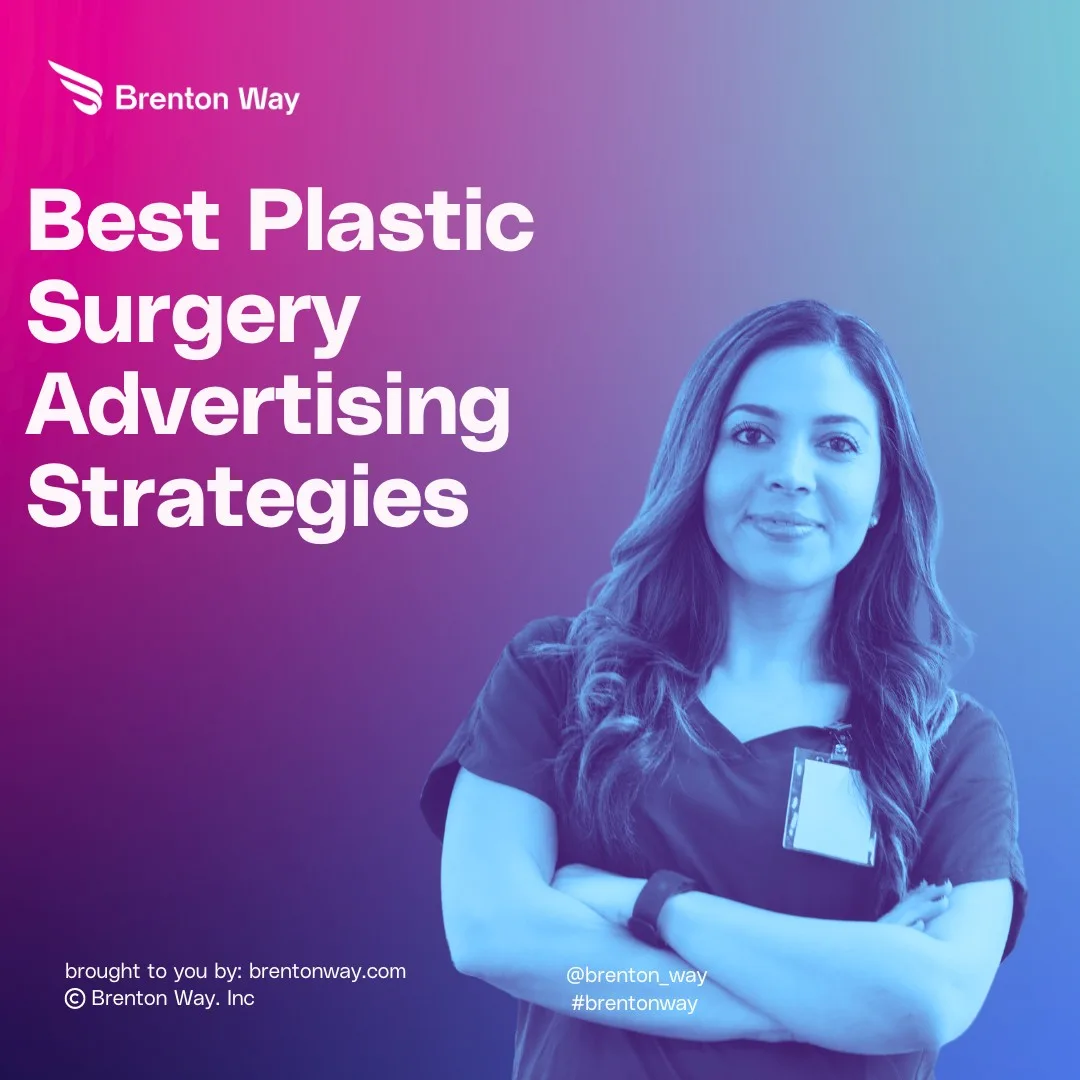
Plastic surgery is a medical specialty with various subspecialities. Some of the top subspecialities include Breast Augmentation, Liposuction, Tummy Tuck (Abdominoplasty), facelift (Rhytidectomy), Eyelid Surgery (Blepharoplasty), Thigh Lift, Chin Augmentation (Mentoplasty), and other procedures. As a plastic surgeon specializing in any of the subspecialities, you can drive more patient referrals by leveraging the best plastic […]

Plastic surgery is a medical specialty with various subspecialities.
Some of the top subspecialities include Breast Augmentation, Liposuction, Tummy Tuck (Abdominoplasty), facelift (Rhytidectomy), Eyelid Surgery (Blepharoplasty), Thigh Lift, Chin Augmentation (Mentoplasty), and other procedures.
As a plastic surgeon specializing in any of the subspecialities, you can drive more patient referrals by leveraging the best plastic surgery marketing strategies.
Plastic surgery marketing helps reconstructive surgeons to effectively target and engage potential patients online.
By using healthcare SEO, PPC, content marketing, email marketing, and other cosmetic surgery advertising strategies, aesthetic surgery practitioners can improve branding and drive more individuals to schedule consultations and visit their local clinics.
This article shares the top plastic surgery marketing strategies to obtain new patients and to improve relationships with unhappy patients.
The marketing mix, often referred to as the 4Ps (Product, Price, Place, Promotion), plays a crucial role in the marketing strategy for a plastic surgery practice.
Here’s how the marketing mix can be applied to the field of plastic surgery:
Also See: Healthcare Digital Marketing: Best Practices To Follow
Effective plastic surgery advertising combines a strong online presence, informative content, social proof, and ethical marketing practices to attract and convert potential patients.
Here are the top plastic surgery marketing tactics:
Begin by choosing a domain name that reflects your practice’s name or specialty. Then, select a reliable web hosting service to ensure your website is always accessible.
When it comes to content and design, prioritize a clean, professional, and user-friendly layout that focuses on easy navigation.
Develop engaging and informative content that highlights your services, qualifications, and patient-centered approach.
Here are the key components and pages to include in your aesthetic surgery website:
Here is an example of a plastic surgery website having a relevant menu and a CTA for easier patient consultation.

Leveraging Google Business optimization to boost local patient visits is vital for a plastic surgery practice. It significantly improves your online visibility, making it easier for potential patients in your area to find and choose your services.
For instance, if I search with the keyword ‘plastic surgeon NYC’, I see the following clinics listed at the top in local search engine listings.

These listings are picked via Google Business. Hence, you should have a complete and verified Google Business profile.
By ensuring that your Google Business listing is complete, accurate, and engaging, you enhance your practice’s credibility and trustworthiness. This not only attracts more local patients but also helps you stand out in local search results, giving you a competitive edge in a crowded market.
Also See: Healthcare Branding: Complete Guide For 2023
PPC, which stands for Pay-Per-Click, is the advertising model employed by platforms like Google Ads. Plastic Surgery PPC essentially involves paying when someone clicks on your ad, and these ads usually appear at the top of search results. This form of advertising provides immediate visibility, which is particularly advantageous for plastic surgeons looking to capture the attention of potential patients in their local areas.
Here is an example of a PPC ad targeting the keyword ‘best plastic surgeon in NYC’:

To excel in PPC for plastic surgeons, understanding the bidding process in Google Ads is crucial. While the common misconception is that the highest bidder gets the top ad placement, Google Ads considers several factors, such as competition, quality score, landing page experience, ad relevance, expected click-through rate, and context.
Hence, a strategic approach to bidding is essential. Budgeting for PPC varies, with most plastic surgeons investing between $2,500 to $10,000 per month in Google Ads.
However, the focus should shift from Cost-Per-Click (CPC) to Cost-Per-Acquisition (CPA). The ultimate goal is to determine the cost of acquiring a consultation booking from a potential patient, making CPA a more meaningful metric for campaign success.
Driving more patients online using search engine optimization (SEO) is one of the crucial plastic surgery marketing strategies in today’s digital age.
As more individuals turn to the internet to research medical procedures, it’s imperative for plastic surgery practices to establish a strong online presence.
Here is how plastic surgeons can leverage SEO to attract more patients:
Also See: Plastic Surgery SEO: Best SEO Practices for Plastic Surgeons
| Service | SEO Keywords | Keyword Types |
| Breast Augmentation | – Breast augmentation surgery | Broad Keyword |
| – Breast implant types | Question Keyword | |
| – How to prepare for breast augmentation | Long-Tail Keyword | |
| – Top breast augmentation surgeons in [Location] | Local Keyword | |
| Rhinoplasty | – Rhinoplasty surgery | Broad Keyword |
| – What is a nose job? | Question Keyword | |
| – Rhinoplasty recovery tips | Long-Tail Keyword | |
| – Best rhinoplasty surgeons near me | Local Keyword | |
| Liposuction | – Liposuction techniques | Broad Keyword |
| – How much does liposuction cost? | Question Keyword | |
| – Liposuction recovery and pain management tips | Long-Tail Keyword | |
| – Top liposuction specialists in [Location] | Local Keyword | |
| Facelift | – Facelift surgery | Broad Keyword |
| – What is a facelift? | Question Keyword | |
| – Facelift vs. Botox: Which is right for you? | Long-Tail Keyword | |
| – Leading facelift surgeons in [Location] | Local Keyword | |
| Tummy Tuck | – Tummy tuck cost | Broad Keyword |
| – Tummy tuck recovery tips | Question Keyword | |
| – Mini tummy tuck vs. full tummy tuck | Long-Tail Keyword | |
| – Find the best tummy tuck clinics in [Location] | Local Keyword | |
| Botox and Fillers | – Botox injections | Broad Keyword |
| – Are dermal fillers safe? | Question Keyword | |
| – Best dermal filler treatments for wrinkles | Long-Tail Keyword | |
| – Local Botox and filler specialists in [Location] | Local Keyword | |
| Eyelid Surgery | – Eyelid lift surgery | Broad Keyword |
| – What is blepharoplasty? | Question Keyword | |
| – Recovery after eyelid surgery | Long-Tail Keyword | |
| – Top eyelid surgery experts in [Location] | Local Keyword | |
| Mommy Makeover | – Combining plastic surgeries after pregnancy | Broad Keyword |
| – How soon after childbirth can I get a makeover? | Question Keyword | |
| – Mommy makeover before-and-after photos | Long-Tail Keyword | |
| – Best mommy makeover specialists in [Location] | Local Keyword | |
| Hair Transplant | – Hair transplant cost | Broad Keyword |
| – What to expect during a hair transplant procedure | Question Keyword | |
| – Hair transplant success stories | Long-Tail Keyword | |
| – Leading hair transplant clinics in [Location] | Local Keyword | |
| Laser Skin Resurfacing | – Benefits of laser skin resurfacing | Broad Keyword |
| – How long does laser skin resurfacing last? | Question Keyword | |
| – Laser skin resurfacing for acne scars | Long-Tail Keyword | |
| – Local experts in laser skin resurfacing in [Location] | Local Keyword |
Content marketing is crucial for establishing authority in the field of plastic surgery. Here are some key strategies for establishing authority through content marketing:
Also See: Healthcare Content Marketing: 10 Top Tactics To Follow
Video marketing offers plastic surgeons a powerful tool to connect with their audience and potential patients on a deeper level.
By showcasing procedures, introducing staff, and sharing patient success stories through video content, plastic surgeons can effectively build trust, convey their expertise, and address patient concerns.
Here is an example of a treatment explanation video on the Viva skin clinics website:

Videos offer a visual and personal approach that text and images alone cannot match, allowing surgeons to demonstrate their skills and facilities while educating and reassuring prospective patients.
Also See: Best Plastic Surgery Advertising Strategies
This engagement can lead to higher conversions, increased online visibility, and a competitive advantage in the competitive field of plastic surgery.
Here are some example videos that you can create for your plastic surgery practice:
One of the most powerful plastic surgery marketing strategies is medical social media marketing. Social media promotion plays a pivotal role in helping plastic surgeons reach and engage with their target audience effectively.
Platforms like Instagram, Facebook, and TikTok allow surgeons to showcase before-and-after photos, patient testimonials, and educational content, creating a visually compelling narrative around their practice. This not only builds credibility and trust but also provides a platform for open communication, enabling surgeons to answer questions, address concerns, and establish a genuine connection with potential patients.
Also See: 10+ Powerful Healthcare Social Media Marketing Strategies
Here is an example of an organic social media post from Suria Cosmetic Surgery Clinic that showcases real patient testimonials:

Here are some social media promotion strategies for plastic surgery practice:
Also See: Best Plastic Surgery Social Media Marketing Companies
Here are some example tips you can leverage for aesthetic surgery social media marketing:
Improving patient engagement through email marketing is essential for plastic surgeons as it fosters stronger connections and trust with patients.
By delivering personalized information, educational content, and timely reminders, email campaigns not only keep patients informed but also encourage their participation in their healthcare journey. This engagement leads to higher patient retention rates, reduced appointment no-shows, and opportunities for feedback and improvement.
Moreover, email marketing serves as a cost-effective means to promote services and build a loyal patient community while ensuring legal compliance and providing measurable results.

Utilizing influencer marketing in the field of plastic surgery can be a strategic move for a couple of reasons. Firstly, it helps to raise people’s trust in your clinic and second, it lets you reach a community of followers who are interested in learning more about the different plastic surgery techniques. Hence, plastic surgery marketing strategies should leverage the power of health influencers.
A strong online reputation, characterized by positive reviews, sets your practice apart from competitors, giving you a competitive advantage. It also ensures compliance with legal and ethical standards in medical advertising, reducing the risk of legal issues.
For instance, Dr.Richard Swift (a plastic surgeon in New York) has an excellent online reputation with 122 reviews and 4.9 star ratings.

Engaging with reviews, whether they’re positive or negative, showcases your dedication to patient care, fostering a positive reputation and encouraging patient engagement.
Also See: Skincare Branding: The Definitive Guide
Using proper schema markup on your plastic surgery website is essential for improving its visibility in search engine results and providing search engines with structured information about your services.
Schema markup helps search engines understand the content on your site and can lead to rich snippets in search results, making your site more appealing to potential patients.
Here are some of the types of schema markups to boost your plastic surgery marketing strategy:
Commonly effective channels include Google Ads, social media platforms (Facebook, Instagram), content marketing (blogs, videos), and email marketing. The choice depends on your target audience and goals.
Utilize audience targeting options on advertising platforms, create detailed buyer personas, and consider factors like age, gender, location, interests, and demographics to refine your targeting.
Yes, SEO (Search Engine Optimization) is essential for long-term online visibility. It helps your website rank higher in search results, attracting organic traffic and potential patients.
Yes, plastic surgery marketing strategies, such as social media ads, allow you to reach a highly targeted audience and showcase before-and-after photos, patient testimonials, and educational content, which can be very effective for plastic surgery marketing.
Feature patient testimonials in your ads, website, and social media to build trust. Ensure you have proper consent to use patient information and images.
Content marketing, such as blogs and videos, educates potential patients, establishes you as an authority, and improves your website’s SEO, making it a valuable component of your strategy.
Track key performance indicators (KPIs) like website visits, consultation requests, conversion rates, and ROI. Use analytics tools provided by advertising platforms.
Yes, email marketing can nurture leads, provide educational content, and promote special offers to a targeted audience. It’s effective for maintaining patient relationships and attracting new ones.
Absolutely. Adherence to medical advertising regulations is crucial to avoid legal issues and maintain a trustworthy reputation. Ensure that all content complies with these regulations.
A successful strategy should encompass a mix of paid advertising, organic content marketing, patient testimonials, SEO, and an emphasis on patient education and trust-building.
Focus on your unique strengths, such as specialization in specific procedures, exceptional patient care, or cutting-edge technology. Highlight what sets your practice apart in your advertising.
Your budget should align with your advertising goals and the competitiveness of your market. Start with a budget you can comfortably afford and adjust based on campaign performance.
Many plastic surgeons opt to work with specialized plastic surgery marketing agencies. This can save time, provide expertise, and ensure compliance with industry regulations.


